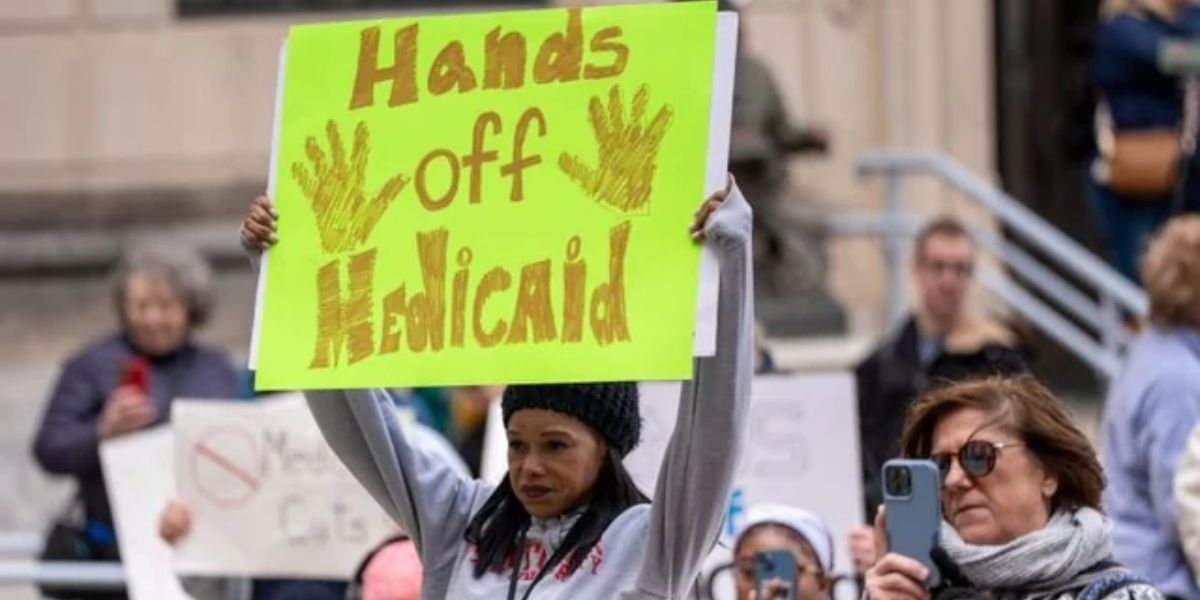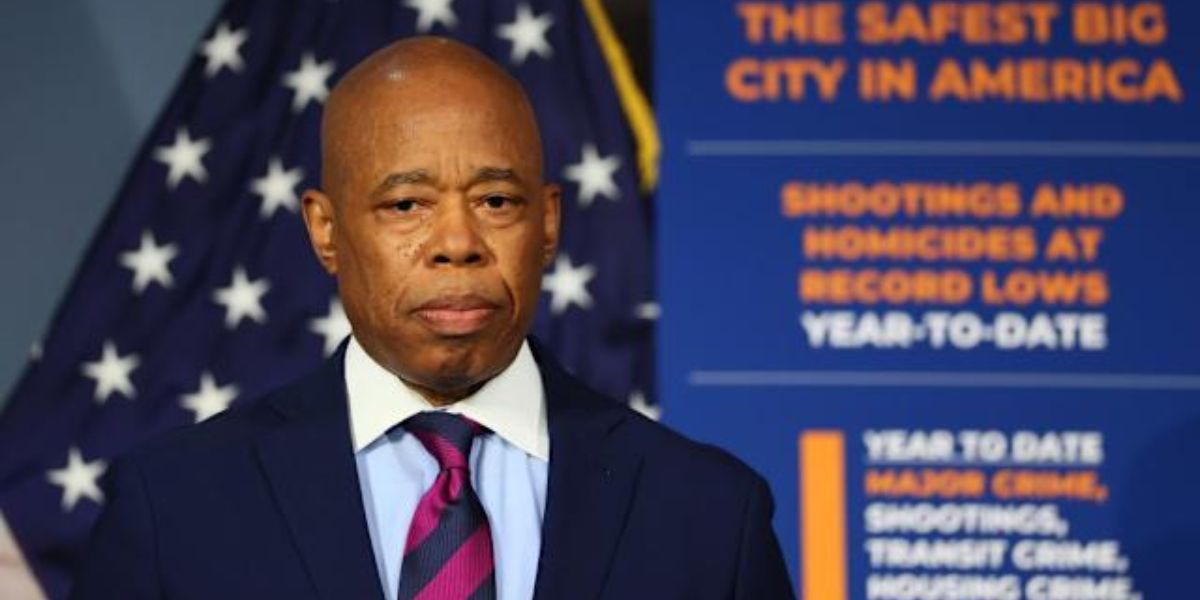Medicaid spending cuts are looming as a flashpoint that might define the 2026 midterm elections, and early battle lines are appearing over a centerpiece of the comprehensive domestic policy measure that House Republicans narrowly enacted.
After Republicans largely pledged they wouldn’t reduce Medicaid, Democrats are honing their pitch as they denounce the plan, which is now headed to the GOP-led Senate, as a tax reduction for the wealthiest that would be financed by reducing health care.
In a bid to gain the House majority the following year, the Democratic Congressional Campaign Committee recently issued a document pledging to make the GOP’s “tax scam” and Medicaid cuts “the defining contrast of the 2026 election cycle.”
According to a source with knowledge of the private discussions, the DCCC is instructing Democratic candidates to attack the Republican measure as a Trojan horse intended to remove millions from Medicaid — not to solve waste — with further red tape.
Republicans are also attempting to reframe the conflict to suit their interests. In order to promote the bill as “strengthening Medicaid,” the National Republican Congressional Committee is instructing members to restrict the program to those who actually need it, “not fraudsters, able-bodied adults who refuse to work, or illegal immigrants.”
Beneath the conflict is a tumultuous discussion about what exactly qualifies as a Medicaid “cut.”
Republicans argue that their package shouldn’t be classified as a cut because they aren’t directly reducing benefits for those with disabilities and low incomes.
Millions of individuals, particularly those who are most in need of the program, will lose their coverage if they are unable to comply with the increased bureaucratic requirements to continuously prove their eligibility, according to Democrats and outside critics.
Strict new requirements to preserve Medicaid eligibility—which would require adult users to demonstrate they are working or performing “community service” for at least 80 hours per month, with few exceptions, such as pregnant women—would account for the majority of the cost reductions.
By the end of 2026, that regulation would take effect. Verifying addresses, demonstrating legal immigrant status, and conducting eligibility screenings more frequently—once every six months as opposed to once a year—are further new regulations.
The Congressional Budget Office, which is impartial, estimates that the measure will eliminate health coverage for around 8.6 million people and decrease Medicaid by roughly $700 billion compared to current law.
(The estimate may have been higher because it was predicated on the work requirement starting in 2029, prior to its advancement in the amended bill.)
Republicans, meanwhile, are trying to refocus the discussion on the work requirements, which polls indicate most voters favor for healthy individuals, and portray the bill as an effort to get Medicaid back to the people who need it most.
“House Republicans were caught lying about their vote to rip health care away from millions of people and are now scrambling to change the subject,” DCCC spokesperson Viet Shelton wrote in an email in response to a question on the GOP’s argument over the bill’s work requirements.
Republicans are currently mired in a doomsday debate about how many and how quickly people would lose their health care, rather than whether they will, because their tax fraud bill was expressly created to be the biggest Medicaid cut in history.
Senate Republicans may alter the plan due to the politics of the intensifying dispute. Although they generally support work requirements and do not consider them “cuts,” some people have already voiced their displeasure with the Medicaid reforms that have been suggested.
Although he supported the House proposal, President Donald Trump has stated that he does not want to reduce Medicaid. In a digital commercial aired last week, the Democratic Senatorial Campaign Committee called the Republican Party’s Medicaid policy “devastating.”
Although Americans support employment requirements, the support is not strong
The complexity of the problem is highlighted by a recent nationwide survey conducted by the impartial health research organization KFF.
According to the poll, 62% of American adults, including 60% of independents, are in favor of new legislation that would “require nearly all adults to work or be looking for work in order to get health insurance through Medicaid.”
However, the KFF poll indicated that the support was weak. When respondents are told that the majority of Medicaid participants are either unable to work or are already employed, it falls to 32%.
Support falls to 40% when respondents are told that the new regulations would increase administrative expenses without having a major impact on the proportion of Medicaid participants who are employed.
Republicans face more challenges.
Overall, Medicaid spending cuts are unpopular, according to the KFF poll: Just 17% of respondents indicated they wanted Medicaid spending to go down, compared to 82% who said they wanted it to go up or remain roughly the same. Just 33% of respondents, including Republicans, agreed that Medicaid spending should be cut.
According to the survey, only one-fourth of American adults believed that the legislation was about improving the way Medicaid operates, whereas three out of four stated that it was about cutting government spending.
Read Also: Harvard Prohibited from Admitting Foreign Students Under Trump Rule
However, at least one Democratic contender has been slowed down by the GOP’s focus.
Democrats have a responsibility to raise the voices of ordinary citizens in their districts who would be negatively affected by the new regulations and to argue that “people who need Medicaid are going to lose it because of what Republicans are doing,” according to the strategist.
Some in the party caution that the politics are different this time around as leading Democrats reiterate their winning message from the 2018 election campaign, when Republicans attempted to dismantle the Affordable Care Act and implemented the Trump tax cuts.
Ashley Schapitl, a former Democratic Senate communications aide, stated that the Republican “message today is about requiring able-bodied Americans to work, preventing fraud, and ensuring noncitizens are not covered.”
A six-figure ad campaign was started Wednesday in 26 Republican-held districts by House Majority Forward, a political organization dedicated to electing Democrats, accusing the members of voting to increase costs for average citizens through Medicaid cuts.
Rob Bresnahan, a freshman Republican representative in Pennsylvania’s 8th District, “just cast the deciding vote to raise the cost of your groceries and cut your health care including Medicaid — to pay for tax cuts for the ultra-rich,” according to an advertisement.
Read Also: Texas Republicans Push to Ban Municipal Gun Buyback Programs
Other incumbents, all of whom played crucial roles in last week’s 215-214 vote to approve the legislation and send it to the Senate, are targeted with a similar script.
Notably, Republicans are concentrating their own new advertising effort on highlighting the tax benefits in the package rather than its budget cuts.
Targeting 25 Democratic incumbents in tough districts, the NRCC released new advertisements on Friday, claiming that their opposition to the plan that extends the expiring 2017 Trump tax cuts voted “for the largest U.S. tax hike in generations.”
By stating that “illegals get freebies, you get the bill” under the current system, the advertisement subtly alludes to citizenship verification for benefits.



